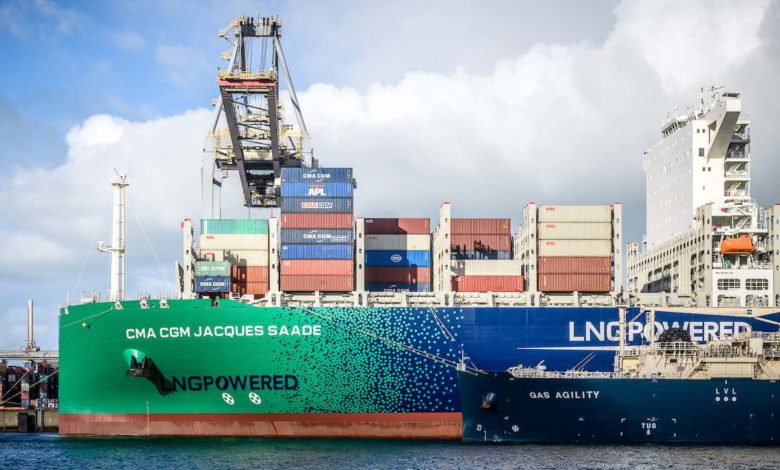CMA CGM leads Marseille’s bio-LNG pitch

Marseille-headquartered CMA CGM could get a reliable source of bio-LNG in its own backyard soon. The company that has invested more than any other carrier in LNG-fuelled newbuilds is now looking to help future-proof its investments, making fuel from local household waste.
EveRé, operator of a multi-process household waste treatment plant commissioned by Métropole Aix-Marseille-Provence has teamed with CMA CGM as well as Elengy, a subsidiary of Engie, operating liquefied natural gas terminals at Fos-sur-Mer and energy major TotalEnergies to study the feasibility of creating France’s first production unit for liquefied biomethane or bio-LNG.
Produced by converting the biodegradable part of household waste from the Marseille Provence region, the fuel would be made available to ports in the region.
“The project forms a circular economic system,” CMA CGM claimed in a release, adding: “Using the area’s household waste will help reduce local air pollutants (nitrogen oxides, sulfur oxides and fine particles), improving air quality and quality of life for people living in the region and supporting the energy transition in the shipping industry.”
Bio-LNG, combined with the dual-fuel gas engine technology developed by CMA CGM, reduces greenhouse gas emissions including carbon dioxide by at least 67% relative to well-to-wake VLSFO, the French carrier claimed in a release. On the basis of a tank-to-wake measurement, greenhouse gas emissions are reduced by 88%, CMA CGM maintained.
“Bio-LNG has particular advantages when it is produced from domestic and agricultural waste. The process can capture methane that would otherwise be vented into the atmosphere, resulting in a fuel that is not just zero GHG emissions but has the potential for negative emissions,” SEA-LNG, the lobby group promoting LNG as a marine fuel, suggested in a report from earlier in the year.
By the end of 2024, 44 of CMA CGM’s vessels will be powered by LNG.
